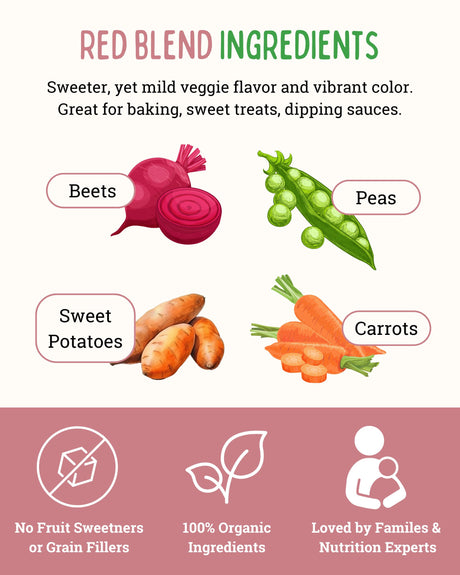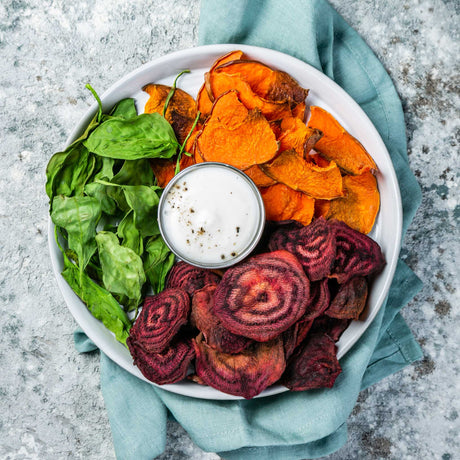Nurturing Your Gut for Optimal Health
The health of our gut is a cornerstone of overall wellness, influencing everything from our digestion to our immune system, and even our mood. Often referred to as the body's 'second brain', our gastrointestinal system is more than just a pathway for food; it's a complex ecosystem that plays a critical role in processing nutrients and defending against harmful bacteria.
A healthy gut contributes to efficient digestion, robust immunity, and can even impact mental health. Understanding and nurturing this vital aspect of our body is key to maintaining our overall health and vitality.
Probiotics and Prebiotics: The Dynamic Duo of Digestive Health
Enter probiotics and prebiotics, the dynamic duo that supports a thriving gut microbiome. Probiotics are live, beneficial bacteria that add to the population of good bacteria in our digestive system. They are the warriors that help maintain a healthy balance of gut flora, essential for proper digestion and immune function.
Prebiotics, on the other hand, are non-digestible food components that act as food for these beneficial bacteria. They help the good bacteria to flourish and maintain a healthy gut environment. Together, probiotics and prebiotics work synergistically to promote digestive health, making them essential components of a gut-friendly diet.
As we delve deeper into the world of these gut health superstars, we'll discover how to harness their benefits for our overall well-being.
Understanding the Gut Microbiome
The Intricate World Within: The Gut Microbiome Explained
The gut microbiome refers to the vast community of microorganisms, including bacteria, viruses, fungi, and other microbes, that reside in our digestive tract. This intricate ecosystem plays a crucial role in our overall health.
It's involved in digesting the food we eat, absorbing and synthesizing nutrients, and even plays a part in our immune system functioning. These microorganisms have a symbiotic relationship with us; they depend on us for survival, and in return, they perform functions essential for our well-being.
Balancing Act: Good vs. Bad Bacteria
A healthy gut microbiome is all about balance. While we often associate bacteria with disease, many of these microorganisms are beneficial and vital for our health. They aid in digestion, produce vitamins, and protect against harmful bacteria. However, this delicate balance can be disrupted by factors such as poor diet, stress, and antibiotics, leading to an overgrowth of harmful bacteria.
This imbalance, known as dysbiosis, can lead to various health issues, including digestive disorders, weakened immunity, and even certain chronic diseases. Understanding and maintaining the balance of these microbes is key to a healthy gut, and consequently, a healthier body and mind.
What are Probiotics?

Unveiling Probiotics: Beneficial Bacteria for Your Gut
Probiotics are often described as 'good' or 'friendly' bacteria that contribute positively to our gut microbiome. These live microorganisms, when consumed in adequate amounts, provide a health benefit to the host - that's us! They come in various types or strains, each with specific benefits.
The most common groups include Lactobacillus and Bifidobacterium, each comprising different strains that can impact gut health in diverse ways. Understanding these variations is essential, as different probiotics serve different purposes in our body.
The Role of Probiotics in Digestive Health
The primary role of probiotics in the digestive system is to maintain a healthy balance of gut flora. They help digest food, aid in the absorption of nutrients, and strengthen the gut barrier against harmful bacteria.
Probiotics also play a significant role in modulating the immune system and can help reduce inflammation. Additionally, they have been linked to benefits beyond the gut, including improving conditions like irritable bowel syndrome (IBS), promoting heart health, and possibly even affecting mood and mental health.
Finding Probiotics: From Foods to Supplements
Probiotics are found naturally in fermented foods. Yogurt, for instance, is a widely known source, especially those labeled with "live and active cultures." Other fermented foods rich in probiotics include kefir, sauerkraut, kimchi, miso, and kombucha. These foods not only add probiotics to your diet but also are a delightful way to diversify your meals.
For those who may not consume enough probiotics through diet alone, supplements are available. They come in various forms like capsules, powders, or drinks, each containing different probiotic strains and concentrations.
As with any supplement, it's crucial to choose high-quality products and consult a healthcare professional to ensure they're appropriate for your health needs.
The Role of Prebiotics in Gut Health
Prebiotics: The Unsung Heroes of a Healthy Gut
Prebiotics are often overshadowed by their more famous counterparts, probiotics, yet they play an equally vital role in gut health. Unlike probiotics, which are live bacteria, prebiotics are non-digestible fibers that act as food for the beneficial bacteria in our gut.
They pass through the upper part of the gastrointestinal tract undigested and stimulate the growth or activity of advantageous microbes in the large intestine. Essentially, prebiotics are the fuel that helps probiotics and other good bacteria thrive and flourish.
Nourishing the Gut Microbiome
The importance of prebiotics in gut health lies in their ability to promote a balanced and diverse gut microbiome. By nourishing the good bacteria, prebiotics help enhance digestion, improve absorption of minerals, and contribute to bowel regularity.
They also play a role in enhancing immune function and may have a protective effect against certain digestive disorders. By maintaining a flourishing and balanced gut microbiome, prebiotics indirectly support overall health and well-being.
Dietary Sources of Prebiotics
Prebiotics are predominantly found in high-fiber foods. Some excellent sources of prebiotics include garlic, onions, leeks, asparagus, bananas, oats, apples, and flaxseeds. Legumes, such as beans, lentils, and chickpeas, are also rich in prebiotic fibers. Incorporating these foods into your daily diet can naturally boost your prebiotic intake.
Simple ways to do this include adding bananas or apples to your breakfast, incorporating beans in salads and stews, or using garlic and onions as the base for various dishes. By diversifying your diet with these prebiotic-rich foods, you're not only fueling your gut bacteria but also reaping the benefits of a fiber-rich diet.
The Symbiotic Relationship Between Probiotics and Prebiotics
Harmonious Partnership: Probiotics and Prebiotics Working Together
The relationship between probiotics and prebiotics is a perfect example of nature’s synergy. Probiotics, the beneficial bacteria in our gut, thrive and function effectively when fueled by prebiotics, the non-digestible fibers that serve as their food.
This symbiotic relationship is crucial for maintaining a balanced gut microbiome. Prebiotics help probiotics colonize and establish themselves in the gut, enhancing their ability to support digestion, boost immunity, and even improve mental health.
Together, they create a gut environment that's conducive to overall health, highlighting the importance of including both in our diet.
Synbiotics: The Power Duo
The concept of synbiotics takes this relationship a step further. Synbiotics are dietary supplements or foods that contain both probiotics and prebiotics. The idea is to combine these two elements to maximize the survival and activity of beneficial bacteria in the gut.
By providing both the live bacteria (probiotics) and the fuel they need to thrive (prebiotics), synbiotics aim to enhance the efficacy and benefits of each. This can be particularly beneficial for restoring and maintaining a healthy gut microbiome, especially after disruptions caused by factors like antibiotics, poor diet, or stress.
Including synbiotic foods or supplements in your diet can be a powerful strategy for optimal digestive wellness, ensuring that your gut has everything it needs to support your overall health.
Health Benefits of Probiotics and Prebiotics
Digestive Harmony: The Gastrointestinal Benefits
Probiotics and prebiotics play a significant role in promoting a healthy digestive system. Probiotics help restore the natural balance of gut bacteria, leading to improved digestion and reduced symptoms in conditions like irritable bowel syndrome (IBS), inflammatory bowel disease (IBD), and diarrhea.
Prebiotics, meanwhile, contribute to overall gut health by enhancing the growth of beneficial bacteria, leading to better bowel regularity and reduced gastrointestinal discomfort. Scientific studies have shown that a combination of probiotics and prebiotics can alleviate symptoms of various digestive disorders, making them a valuable part of dietary strategies for gut health.
Immune Boosters: Strengthening the Body's Defense
The impact of probiotics and prebiotics extends to the immune system as well. They play a critical role in modulating the body's immune response, enhancing the ability to fight off infections and reducing the risk of certain allergies.
Research indicates that probiotics can stimulate the production of natural antibodies and may boost immune cells like the IgA-producing cells, T lymphocytes, and natural killer cells. This enhancement of the immune system is particularly important during the cold and flu season or for individuals prone to frequent infections.
A Mind-Gut Connection: Mental Health Implications
Emerging research suggests a fascinating link between gut health and mental health, often referred to as the 'gut-brain axis.' Probiotics and prebiotics may play a role in improving mental health conditions like depression and anxiety.
Some studies have found that certain probiotics can produce and deliver neuroactive substances such as serotonin and gamma-aminobutyric acid (GABA), which can positively affect mood and emotional well-being.
While research in this area is still evolving, the potential mental health benefits of probiotics and prebiotics open up new avenues for addressing psychological well-being through gut health.
Scientific Backing: Research and Studies
The health benefits of probiotics and prebiotics are supported by a growing body of scientific research. Numerous studies have demonstrated their efficacy in improving digestive health, enhancing immune function, and potentially benefiting mental health.
Clinical trials continue to explore and validate these effects, offering promising insights into how these gut-friendly substances can be used therapeutically. This scientific backing not only reinforces the importance of probiotics and prebiotics in our diet but also guides their effective use in promoting overall health and well-being.
Incorporating Probiotics and Prebiotics into Your Diet

Embracing Probiotics in Everyday Eating
Adding probiotics to your diet can be both delicious and effortless. Start your day with a serving of yogurt or kefir, choosing brands that boast live and active cultures. For a savory option, incorporate fermented foods like kimchi, sauerkraut, or miso into your meals.
These can be great as side dishes or flavor enhancers in recipes. If dairy is a concern, explore plant-based fermented options like kombucha or tempeh, which are not only probiotic-rich but also add variety to your diet.
Fueling the Gut with Prebiotic Foods
Prebiotics are just as crucial as probiotics for gut health. To increase your prebiotic intake, include more high-fiber foods like garlic, onions, leeks, asparagus, and bananas in your meals.
Whole grains, such as barley, oats, and whole wheat, are also excellent prebiotic sources. Try adding oats to your morning smoothie, using garlic and onions as the base for soups and sauces, or snacking on bananas to keep your gut bacteria happy.

Creative Meal and Snack Ideas
For a gut-healthy breakfast, mix yogurt with a high-fiber cereal or homemade granola. Lunch could include a hearty salad with asparagus and onions, topped with tempeh or a miso-based dressing.
Dinner might feature a stir-fry with garlic, leeks, and other prebiotic-rich vegetables. For snacks, think outside the box: pair bananas with a probiotic yogurt dip, or enjoy a serving of sauerkraut or kimchi on its own or as part of a larger dish. The possibilities for incorporating these gut-healthy foods into your diet are endless and can be tailored to suit your tastes and preferences.
Remember, the key to a happy gut is variety, so don't be afraid to experiment with different probiotic and prebiotic foods and find what works best for you.
Embracing Gut Health Through Probiotics and Prebiotics

The Cornerstones of Digestive Wellness: Probiotics and Prebiotics
As we conclude our exploration of probiotics and prebiotics, it's clear that these two components play pivotal roles in maintaining a healthy digestive system. Probiotics, the beneficial bacteria, contribute to a balanced gut microbiome, aiding in digestion, bolstering the immune system, and even impacting our mood and mental health.
Prebiotics, serving as the fuel for these beneficial bacteria, ensure that our gut environment remains conducive to health and vitality. Together, they form a synergistic partnership that is fundamental to digestive wellness and overall health.
The Bigger Picture: A Balanced Diet for Holistic Health
The journey towards optimal gut health extends beyond just incorporating probiotics and prebiotics; it involves embracing a balanced and diverse diet. A diet rich in various fruits, vegetables, whole grains, and fermented foods naturally supports a healthy gut microbiome.
It's about making mindful choices that not only cater to our gut but also contribute to our overall well-being.
Remember, gut health is intrinsically linked to many aspects of our physical and mental health. By nurturing our gut through a varied and balanced diet, supplemented as needed with probiotics and prebiotics, we pave the way for better health and improved quality of life.
As we integrate these insights into our daily routine, we foster a relationship with food that is not only nourishing but also healing.
A Parting Thought: Nourishing the Gut, Nourishing the Self
In embracing the roles of probiotics and prebiotics, we open doors to a more harmonious and healthful existence. It's a journey of understanding and respecting our body’s needs, acknowledging the profound impact our dietary choices have on our overall health.
Let's carry forward the knowledge that nurturing our gut is an act of self-care, a commitment to our body's intricate and beautiful ecosystem. Here's to a gut-friendly lifestyle that supports not just a healthy digestive system, but a vibrant, thriving life.
Leave your comments below; we love to hear from you! And don't forget to follow EasyPeasie for more veggie info and convo on YouTube, Facebook, and Instagram! ~ThePeas













